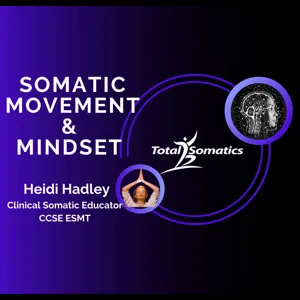Podcast Summary
The brain clears waste during sleep, including beta-amyloid linked to Alzheimer's: Sleep plays a crucial role in brain health by clearing waste, including beta-amyloid, potentially preventing or slowing down Alzheimer's progression.
Recent research suggests that not getting enough sleep could make the brain more vulnerable to Alzheimer's disease. For decades, scientists have known that people with Alzheimer's often have sleep problems. But the question of whether sleep issues cause Alzheimer's or vice versa has been a mystery. In a recent study, researchers discovered that during sleep, the brain goes through a process of clearing out waste, including beta-amyloid, a protein linked to Alzheimer's. When this process is disrupted, the buildup of beta-amyloid in the brain could lead to Alzheimer's. The study adds to the growing evidence that sleep plays a crucial role in brain health and could potentially prevent or slow down the progression of Alzheimer's. So, getting enough quality sleep is not just important for feeling rested and focused during the day, but also for maintaining a healthy brain and potentially reducing the risk of Alzheimer's disease.
Apple Card rewards vs. the importance of sleep: Apple Card offers varying rewards for purchases, while sleep plays a crucial role in maintaining brain health and potentially preventing Alzheimer's disease by clearing waste.
Apple Card offers different rewards based on how you make your purchases: 3% cash back on products bought from Apple, 2% on purchases made with Apple Pay, and 1% on everything else. Meanwhile, in the world of science, researchers have discovered an intriguing connection between sleep and Alzheimer's disease. By studying the brains of living mice using a high-tech microscope, scientists found that during sleep, cerebral spinal fluid recirculates through the brain along the outsides of blood vessels, exchanging fluids and potentially removing waste. This process could play a role in preventing Alzheimer's disease by clearing beta-amyloid proteins that build up between brain cells and contribute to cognitive decline. So, getting enough quality sleep could be an essential step in maintaining brain health and potentially preventing Alzheimer's disease.
The glymphatic system's role in brain waste removal during sleep: Sleep is essential for the glymphatic system to function effectively, removing waste and toxins like carbon dioxide and ammonia, and preventing the buildup of beta amyloid, a potential cause of Alzheimer's disease.
The glymphatic system, a recently discovered process in the brain, plays a crucial role in removing waste produced by brain cells. This system is active during sleep and helps eliminate toxins such as carbon dioxide and ammonia. Lack of sleep may lead to an accumulation of these waste products, potentially impairing cognitive function and increasing the risk for conditions like Alzheimer's disease. This condition is due to the buildup of beta amyloid, a waste product that forms plaques in the brain, contributing to the death of brain cells. Sleep deprivation has been linked to an increased risk of developing Alzheimer's, particularly in mice.
New way to study glymphatic system in humans using MRI technology: Scientists discovered large oscillating waves of CSF flow during sleep, triggered by electrical waves in neurons, potentially leading to new insights into toxin clearance and neurodegenerative diseases.
Scientists have discovered a new way to study the glymphatic system in humans, which is responsible for the clearance of toxins in the brain. This was achieved by monitoring brainwaves, blood flow, and CSF flow in sleeping individuals using MRI technology. An intriguing finding was that during sleep, there are large, oscillating waves of CSF flow into the brain, preceded by electrical waves in neurons. The current hypothesis is that these electrical waves trigger the washing cycle that flushes out toxins. This discovery could potentially lead to new insights into the relationship between sleep, toxin clearance, and neurodegenerative diseases like Alzheimer's.
The importance of deep sleep for flushing out toxins linked to Alzheimer's: Deep sleep plays a vital role in removing beta amyloid, a toxin linked to Alzheimer's, but lack of deep sleep can disrupt it, making it an important factor for brain health along with genetics, conditions, and cell metabolism.
Deep sleep plays a crucial role in the flushing out of toxins, including beta amyloid, which is linked to Alzheimer's. However, the lack of deep sleep can lead to a vicious cycle, as the build-up of beta amyloid can disrupt sleep. While sleep deprivation alone may not determine the likelihood of getting Alzheimer's, it is an important factor for brain health, along with genetics, conditions like diabetes, and cell metabolism. Ensuring proper sleep and sleep quality is essential for overall brain health, and this is just one more reason to prioritize it.
Streamline your shipping process with Stamps.com: Import orders, compare rates, update customers, and manage supplies with Stamps.com for efficient shipping and enhanced customer experience.
Stamps.com offers a convenient solution for online sellers to manage their shipping needs efficiently. With this service, you can import orders from multiple sales channels, compare the best shipping rates and delivery times, and update customers with tracking information. Additionally, you can stock up on supplies and even get a free digital scale during a 4-week trial. Overall, Stamps.com simplifies the shipping process and enhances the customer experience. Give it a try using the provided code for a free trial, free postage, and valuable shipping tools.





